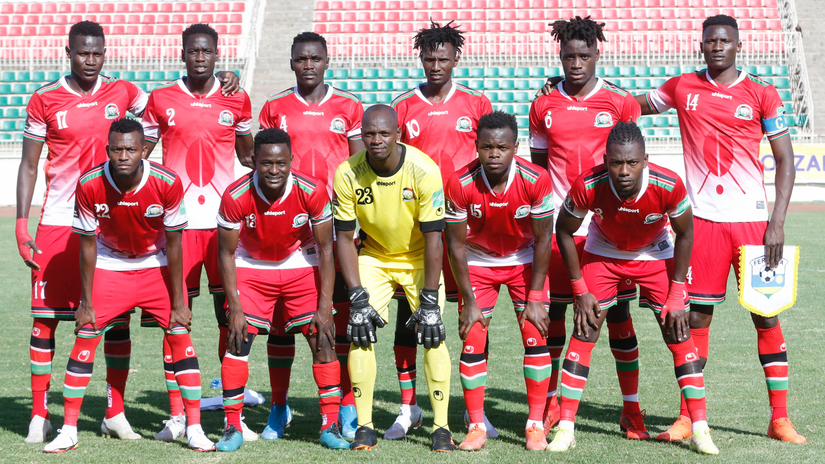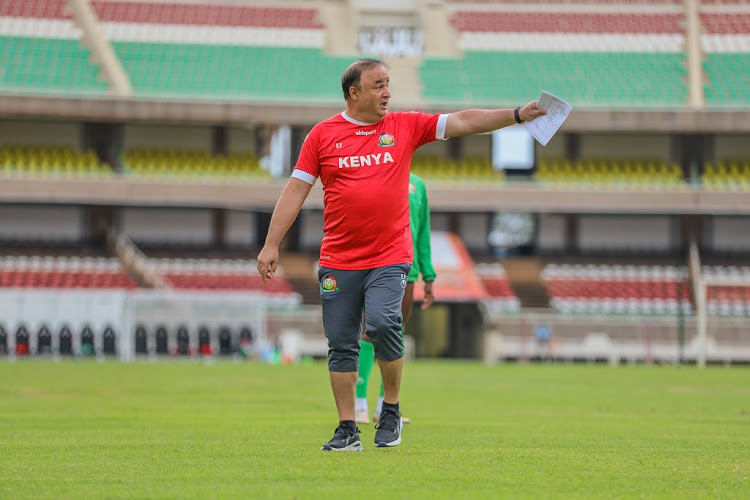Discover why Harambee Stars coach Engin Firat believes Kenya needs to improve its football infrastructure to match its AFCON co-hosts, Uganda and Tanzania.
Firat Praises Uganda’s Football Infrastructure
As the Harambee Stars prepare for their AFCON 2025 qualifying match against Zimbabwe, head coach Engin Firat has turned the spotlight on the stark contrast between Kenya’s and Uganda’s football infrastructure. Kenya, which recently won the bid to co-host the 2027 Africa Cup of Nations (AFCON) alongside Uganda and Tanzania, is currently lacking a CAF-approved stadium. As a result, the team had to relocate their match to Uganda’s Nelson Mandela Stadium.
Firat, in a candid reflection, commended Uganda for its significant progress in upgrading its sports infrastructure, highlighting the impressive conditions of the newly renovated stadium. He emphasized that the level of investment and development he witnessed in Uganda should serve as a wake-up call for Kenya.
“Uganda is making great strides, and we are far from this. The conditions here are superb. We can only dream of such stadiums in Kenya,” Firat remarked after a training session at the stadium.

Why Infrastructure is Key to Football Success
Firat’s comments come at a critical time for Kenya, as the country is set to co-host the AFCON 2027 tournament. However, without suitable stadiums and facilities, Kenya risks falling short of expectations both as a host nation and as a competitive team. Firat’s message was clear: football success doesn’t come from just talent and hard work—it also requires modern infrastructure that supports player development, fan experience, and international standards.
The Turkish coach, who previously managed Moldova, is no stranger to the challenges of developing football programs in nations with limited resources. Firat pointed out that infrastructure is a critical foundation that allows teams to train effectively and compete at the highest levels.
“Infrastructure plays a vital role in football success. It’s not just about the players or the coaches—it’s about the facilities that allow teams to prepare and perform,” Firat stated.

Kenya’s Struggle with CAF-Approved Stadiums
One of Kenya’s biggest setbacks in recent years has been the absence of CAF-approved stadiums, a problem that has plagued the country’s football landscape. Despite winning the rights to co-host the AFCON finals in 2027, Kenya has struggled to keep pace with its regional neighbors when it comes to infrastructure development. The lack of a compliant stadium meant that Kenya’s AFCON qualifier against Zimbabwe had to be moved to Uganda, a decision that highlighted the urgent need for improvements.
Firat expressed frustration over the lack of progress, urging Kenyan stakeholders to focus on action rather than engaging in blame games.
“We need to stop talking and start working. Uganda and Tanzania are progressing, but in Kenya, we’re stuck in discussions with little action. You can’t reach the World Cup or AFCON through words alone,” Firat added, underscoring the need for tangible efforts in stadium development.

Uganda and Tanzania Lead the Way
While Kenya struggles with stadium approval, both Uganda and Tanzania have made significant strides in preparing for the AFCON 2027 finals. Uganda’s Nelson Mandela Stadium, which recently underwent major renovations, is a clear example of how a country can invest in sports infrastructure to support both local and international competitions. Tanzania has similarly made advancements, positioning itself as a strong contender in regional football.
Firat emphasized that Kenya should look to these nations as examples of what can be achieved with the right focus and investment. Both Uganda and Tanzania have not only upgraded their stadiums but have also enhanced their training facilities, ensuring that their national teams can compete on the global stage.
“The difference between Kenya and its neighbors is evident. Uganda and Tanzania are putting in the work, and it shows. Kenya needs to learn from this and take the necessary steps to ensure we are ready for AFCON 2027 and beyond,” Firat said.
Moving Beyond Blame Games
Firat’s critique wasn’t solely focused on the lack of infrastructure but also on the culture surrounding Kenyan football. According to the coach, Kenya has spent too much time talking about its problems without taking meaningful action. This tendency to engage in discussions and blame games, rather than addressing the core issues, is something Firat believes is holding Kenyan football back.
“People never look at the reality. Let’s start with the infrastructure and compare it with that of Uganda, and see how far we are from top football. Kenyans like blame games. From the time I came, nothing has changed. While Uganda and Tanzania continue to realize growth, we are busy talking. You can’t go to the World Cup or AFCON through talking,” Firat challenged.
For Kenya to make a significant impact in the upcoming AFCON tournament, Firat believes that a shift in mindset is needed. It’s not just about winning matches—it’s about creating an environment where athletes can thrive, from youth development programs to world-class facilities.

What Kenya Needs to Do to Catch Up
To catch up with its co-hosts, Firat stressed that Kenya must take immediate steps to improve its sporting infrastructure. This includes renovating existing stadiums to meet CAF standards, building new facilities, and creating sustainable programs that can nurture future talent. Kenya’s ambitions of becoming a football powerhouse in Africa will remain unfulfilled unless these foundational issues are addressed.
Beyond stadiums, the development of training centers and grassroots programs is essential. Firat advocates for a holistic approach to sports development, one that not only focuses on the national team but also on nurturing young talent.
“We need to build not just for today, but for the future. This means investing in our youth, creating pathways for talent, and ensuring that we have the facilities to support them,” Firat concluded.
Conclusion
Engin Firat’s comments reflect a broader truth about Kenyan football: without proper infrastructure, the country will struggle to compete at the highest levels. As Kenya prepares to co-host the AFCON 2027, there is an urgent need for investment in stadiums and facilities that meet international standards. Uganda and Tanzania are leading by example, and Kenya must follow suit if it hopes to create a lasting legacy in African football.
As Firat said, “We can only dream of such stadiums in Kenya.” Now is the time for those dreams to become reality.


